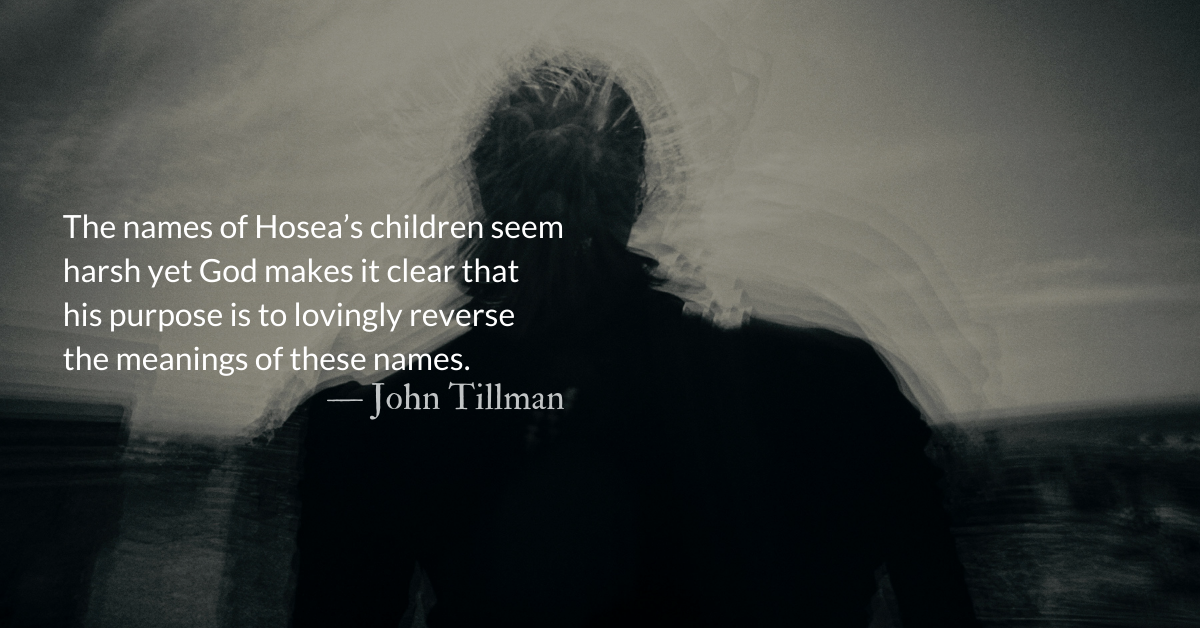Scripture Focus: Hosea 2.19-20, 23
19 I will betroth you to me forever;
I will betroth you in righteousness and justice,
in love and compassion.
20 I will betroth you in faithfulness,
and you will acknowledge the Lord.
23 I will plant her for myself in the land;
I will show my love to the one I called ‘Not my loved one.”
I will say to those called ‘Not my people,[j]’ ‘You are my people’;
and they will say, ‘You are my God.’”
Reflection: A Chiaroscuro Parable
By John Tillman
Hosea makes his life a living parable of God’s relationship with the Jewish people and every single choice sends a harsh message.
The harshness of Hosea’s messages serves to emphasize two things. Like a Rembrandt chiaroscuro painting, with exaggerated lights and darks, Hosea shows the darkness of our abject failure and sin and the bright, hopeful gleams of God’s love pushing back our darkness to reveal beauty and forgiveness.
Some of the dark moments are the names Hosea gives his children, Jezreel, Lo-ruhamah, and Lo-Ammi. The names get gradually worse as does the meaning they imply.
Jezreel was a place name. It was a beautiful place. However, it had become known for bloodshed rather than beauty. Many different political slaughters had soaked this ground in the blood of God’s children. James Limburg, in his commentary on Hosea, points out that naming a child “Jezreel” might be similar to naming a child today “Auschwitz” or “Hiroshima.” Lo-ruhamah literally means “without compassion” or “without mercy”. Lo-Ammi implies Hosea is not the father.
Jezreel pointed to the fall and failure of Israel’s kings and to the injustice and vindictive violence that had seized Israel. Lo-ruhamah indicated the loss of God’s compassion and willingness to intervene on their behalf. Lo-Ammi indicated a future without God’s presence. This, for Israel, meant losing their very identity as a people. If God left them they could echo Moses’s plea, “What else will distinguish me and your people from all the other people on the face of the earth?” (Exodus 33.15-16)
We are a beautiful plain, like Jezreel, ruined by violence and bloodshed.
We are ill-behaved children whose parent, out of love, defended us for too long from consequences. It is this love that God withdraws from us allowing our suffering.
We are rebels disowned and disinherited after breaking God’s heart with our self-destructive behavior.
The names of Hosea’s children (or Gomer’s children, since Hosea implies that they may be children of adulterous relationships) seem harsh yet God makes it clear that his purpose is to lovingly reverse the meanings of these names.
Hosea’s second chapter contains poetic lines indicating that God will still pursue his people with love. He will still work to turn us back. He will still heal us when we return. He will reverse the meanings of our names, making us beautiful, making us loved, and making us his own again.
Divine Hours Prayer: The Greeting
Save us, O Lord our God, and gather us from among the nations, that we may give thanks to your holy name and glory in your praise. — Psalm 106.47
– Divine Hours prayers from The Divine Hours: Prayers for Autumn and Wintertime by Phyllis Tickle
Today’s Readings
Hosea 2 (Listen – 3:48)
Psalm 119:97-120 (Listen – 15:14)
Read more about Restoring Relationship
Regardless of how the Israelites have sinned or been unfaithful, God is strong enough to overcome their sin and restore their relationship.
Read more about Taking Sin Seriously
Jesus doesn’t “let the woman go.” He sends her out. Jesus, instead of taking the woman’s life, redeems it. He buys it for his own.







